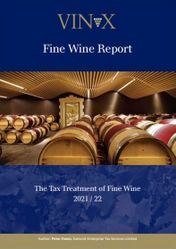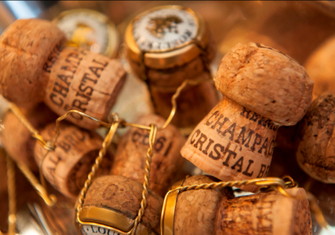Investment wines are proven tax-efficient assets with the primary benefit of generally being exempt from Capital Gains Tax*. Along with strong growth and the ability to hedge inflation, wine is a compelling means to diversify and strengthen your investment portfolio in the current tax year.
Tax and wine headlines
- Wine investments are generally exempt from Capital Gains Tax*
- Duty and VAT charges are not incurred if wine remains in bonded storage
- Wine can be an attractive asset for IHT planning
- Be aware of any Income Tax considerations for frequent trading
- Wine-related companies can offer EIS and SEIS opportunities
One week to go and we are receiving daily reminders to top up cash and share ISAs before the 5thApril 2022. Inflation is making us all think carefully about what is affordable and where to invest to protect cash value from being eroded by the highest inflation levels seen in 30 years. With continued uncertainty in global markets and household energy bills set to soar this year, inflation could hit double-figures for the first time in decades, a frightening thought.
What are the tax benefits and considerations of wine investment?
Fine wine is classed by HMRC as a Wasting Asset, i.e. it has a predictable life of less than 50 years, and any profits made are generally exempt from Capital Gains Tax. *As always, we remind you that wine is not regulated, everybody’s circumstances are different and specialist tax advice should always be sought.

Wine investors should also be mindful of not becoming ‘traders’ in fine wine to avoid triggering an income tax obligation. Given the benefit of holding wine over the long term to enjoy the best possible returns and beneficial IHT treatment, it is highly rare that this would be incurred, but it is valuable to be aware of the potential. Again, specialist advice should be sought, but we shine a light on this in our special Report on Tax and Fine Wine.
Other tax advantages offered by wine include EIS and SEIS investments linked to wine businesses, again our Report explains this further.
Knight Frank’s 2022 Wealth Report recently rated fine wine as the top performing ‘passion asset’ of a collection that includes art, classic cars, rare watches, whisky, coloured diamonds, coins, stamps, handbags and furniture. Performance is a key consideration and when diversifying into alternative assets or tangible investments, such as luxury collectibles, investors want to be certain of paying a fair price, or transparency, and the ability to exit. Fine wine is the class leader, with an established global market, a strong ‘stock-exchange’ function in Liv-ex and professional brokers to guide investors.
If you’re looking for additional opportunities to protect capital and diversify your investment capital, fine wine’s increasing recognition as a ‘safe-haven’ asset, could be a valuable consideration for the end of this tax year.
For more information on investing in Fine Wine, speak to a member of our expert team on 0203 384 2262 and for the latest data see our March 2022 Market Update Report.

